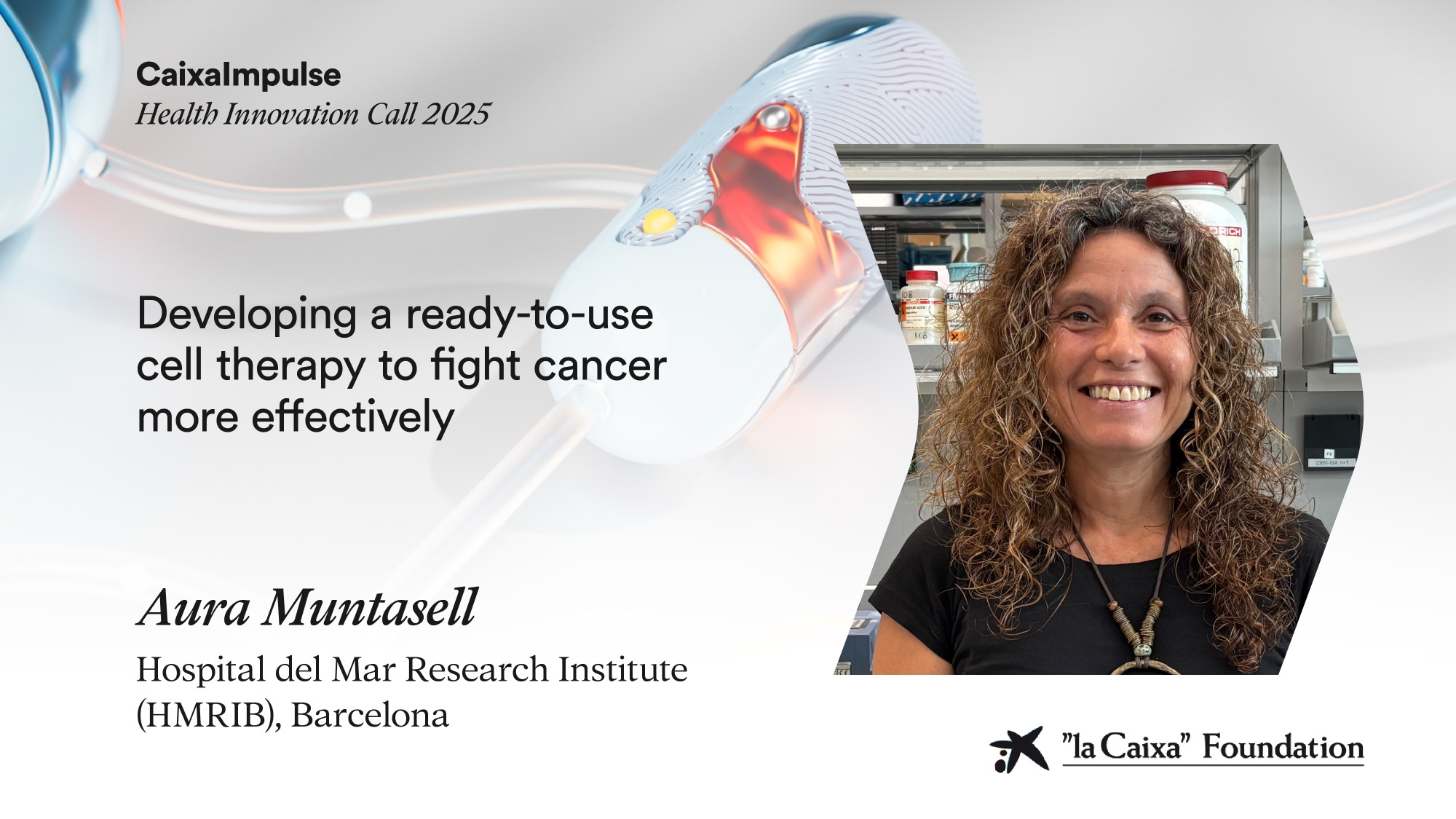Developing a ready-to-use cell therapy to fight cancer more effectively
Project led by Aura Muntasell, funded by Caixa Impulse call

The ”la Caixa” Foundation has announced the results of the 2025 call for proposals for its CaixaImpulse programme, through which it supports 31 biomedical projects from research centres, hospitals and universities in Spain and Portugal. In total, the organisation will allocate 3.8 million euros to this initiative, which aims to speed up the arrival of these innovations on the market so they can reach the patients who may need them. CaixaImpulse also promotes the creation of new products, services and companies linked to the life sciences and health.
The researcher Aura Muntasell is leading one of the selected projects, which pretends to develop a ready-to-use cell therapy to fight cancer more effectively. She is a researcher from "Hospital del Mar" Research Institute and "Institut de Biotecnologia i de Biomedicina (IBB-UAB)", and lecturer from the "Departament de Biologia Cel·lular, de Fisiologia i d’Immunologia at UAB".
Cancer remains one of the leading causes of death worldwide, with many patients facing poor outcomes, especially when their disease spreads or becomes resistant to current treatments. One of the promising new approaches is based on using special immune cells that naturally seek and destroy cancer cells. These cells, called natural killers, have already shown good results in treating blood cancers. However, their effect against solid tumours, like those in the colon or breast, has been limited. This is because solid tumours often create a hostile environment that weakens these immune cells and prevents them from working properly.
This project has now developed a new way to make these natural killer cells stronger and more resistant to the harmful effects caused by substances released by tumours. With a simple change in these cells, they are able to keep working and attacking tumours, even when exposed to the substances that usually slow them down. In laboratory and animal experiments, these improved immune cells showed remarkable ability to find and destroy cancer, even when the tumours tried to defend themselves.
The goal is to turn this discovery into a safe and effective treatment that doctors can give to cancer patients. To achieve this, the researchers will make sure the new cells are safe, can be produced in large quantities, and meet all the requirements for use in hospitals. The project also aims to set up a new company to bring this therapy to patients as quickly as possible, and to explore combinations with other therapies for even better results.
In summary, this project could lead to a new kind of cancer treatment, offering hope to many people whose cancer is not responding to current options, and moving us closer to a future where more patients can overcome their disease.
